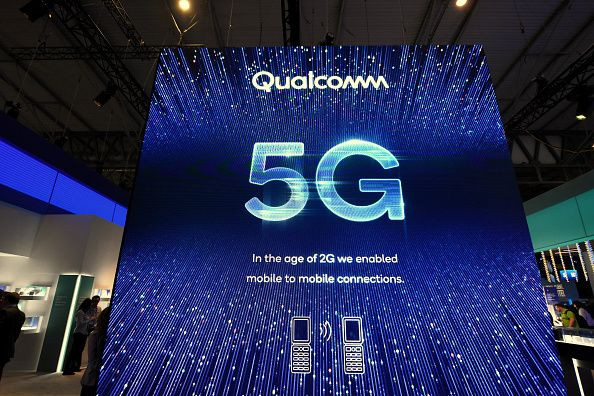How 5G Will Revolutionize Our Lives -- And Unleash Security Threats

What once seemed like science fiction will soon become reality. Doctors will perform surgery from thousands of miles away using remote-controlled robots. Self-driving cars will zip through traffic. Drones, weather satellites, and soil sensors will communicate to maximize crop yields.
This is the promise of fifth-generation wireless technologies, or "5G ." Internet users will download up to 10 gigabytes of videos and documents per second -- one hundred times faster than existing 4G networks. The ability to transmit vast quantities of data virtually instantaneously will
But 5G will also unleash new security risks. Hyper-connectivity will give cybercriminals and hostile foreign countries more opportunities to hack our devices and networks, imperiling our wealth and even our lives. It's crucial for regulators, companies, and consumers to start shoring up their defenses -- and fast.
5G smartphones, which can download entire HD movies in seconds, are already commercially available. The big four cellular carriers -- AT&T, Sprint, T-Mobile, and Verizon -- provide 5G service in select cities. Within five years, 5G subscriptions will cover 40 percent of the global population.
The spread of 5G will accelerate the expansion of the "Internet of Things" -- common devices such as thermostats, fitness monitors, refrigerators, alarm clocks, vending machines, lightbulbs, and even dog collars that can connect to the Web.
This enhanced connectivity will make our daily routines more efficient and convenient. But it'll also open the floodgates for cyber-criminality.
Imagine the opportunities criminals will enjoy once every electronic device is 5G -capable. Burglars could hack smart thermostats -- which "learn" when families leave their homes -- to discover when the house may be empty. Fraudsters could break into smartwatches to learn sensitive health information. Predators could hack 5G -connected security cameras to peek into children's rooms.
Criminals have already hijacked 4G devices. In 2016, the infamous "Mirai" botnet took control of 300,000 internet-connected devices to launch a massive denial-of-service attack that knocked out internet connection for most of the eastern seaboard. This year, a 21-year-old man pleaded guilty to hacking into cellphones and stealing $7.5 million worth of cryptocurrency from at least 40 people.
Now imagine these same actors obtaining control of 5G remote-controlled surgery machines, delivery drones, or automated cars. North Korea, China, and Russia have built sophisticated cybercriminal operations to disrupt American infrastructure. The possibilities for abuse are endless.
Sensible government regulations can prevent such abuses. Thus far, some lawmakers in Congress have introduced legislation calling on the President to develop a strategy for 5G security. But we need to do more.
So, for one, it's imperative for officials to establish an independent regulator exclusively focused on the 5G rollout. That regulator must have the experts and resources to develop new, advanced security measures and anticipate and respond to potential future threats. In light of the forthcoming quantum leap in communication technologies, the existing patchwork of outdated rules and agencies won't do.
Regulators should also mandate that all "Internet of Things" devices have built-in 5G security protections and encrypted data transmissions. Too often, private industry ignores the threat of cybercrime to cut costs. Indeed, many popular 4G home routers and security cameras have little to no built-in security, making them easy targets for malware.
Meanwhile, as mobile operators rebuild their network infrastructure to accommodate 5G , they need to ensure that the entire data chain -- from the radio network and computer chips to the mast and core network -- contains robust, easily updatable security features.
Consumers can strengthen their own defenses by taking a few simple precautions.
For instance, people must change the default passwords of their 5G -connect devices; even amateur hackers can easily figure out the factory settings of home devices. Similarly, device owners should regularly update their software -- new firmware typically includes upgraded security features, but they are useless if people snooze the update messages that pop up on their phones and other devices.
A dose of common sense also makes a big difference when it comes to seemingly harmless data sharing. A hiker who uses her 5G connected smartwatch to share a geolocated Instagram post of her morning trek could inadvertently allow strangers to track her movements.
5G represents a profound leap forward, as groundbreaking as the invention of wireless itself. But it's coming quickly -- and we're not nearly prepared enough to deal with the security risks. It's critical for consumers, companies, and governments to change that.
Babak D. Beheshti is professor and dean of the College of Engineering and Computing Sciences at New York Institute of Technology.
© Copyright IBTimes 2024. All rights reserved.





















